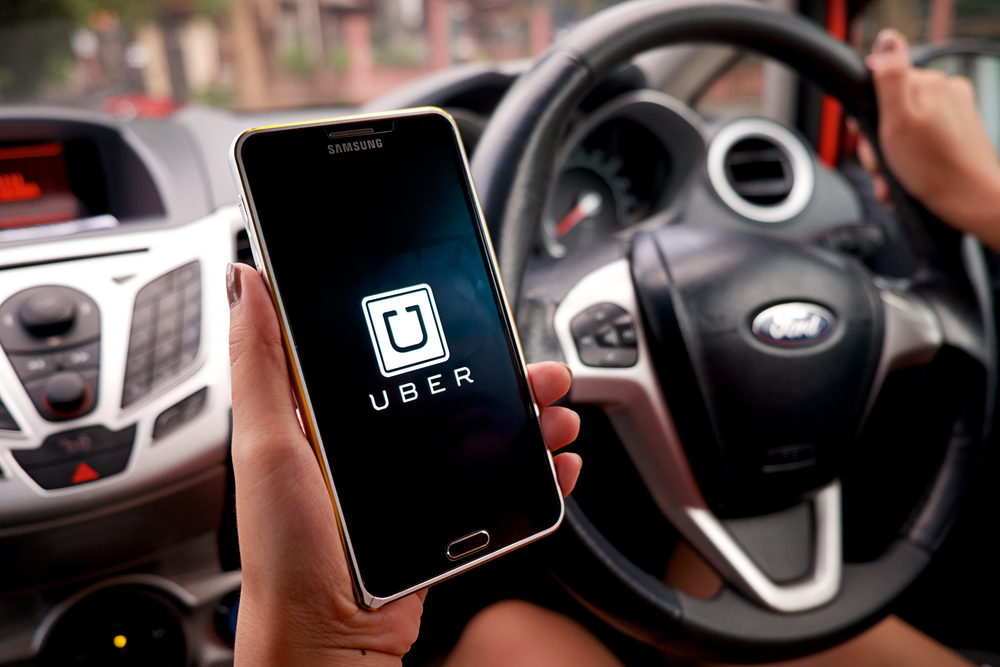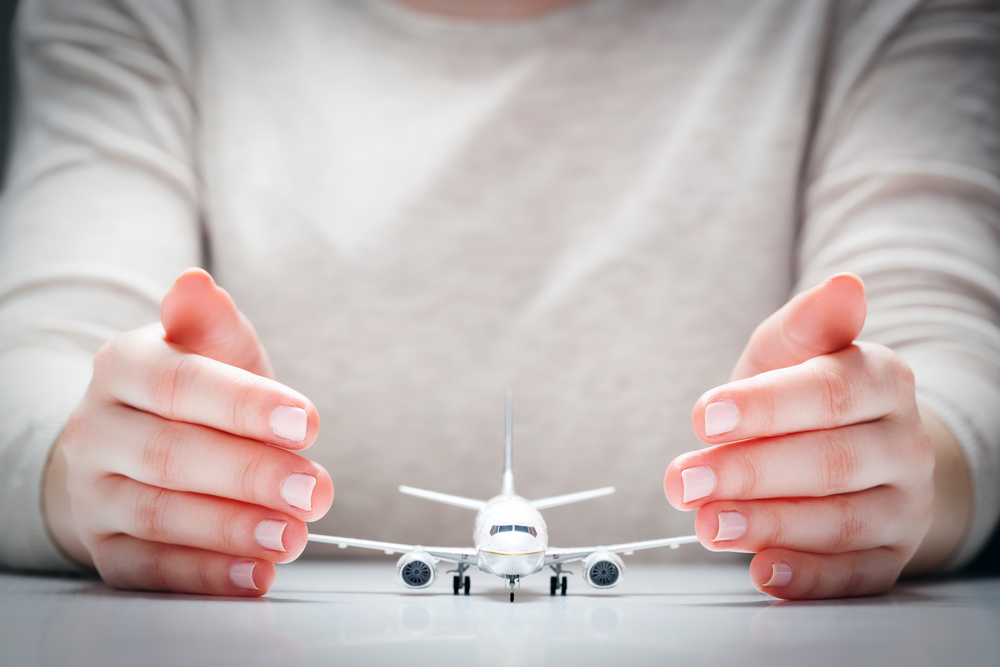
Pic: Airbnb
Why the sharing economy is a boon for business travel
WHETHER you like it or not, the business travel sector is becoming less predictable. Gone are the days where suited travelers are whisked on shiny elevators into cold rooms.
You could probably blame the shift on millennials, who make up the biggest market of business travelers. According to the Portrait of Business Travelers from MMGY Global report, millennials are traveling for business more than ever, and went on an average of 6.8 trips in the last year.
The report also found that millennials are more likely to use room share services like Airbnb compared to their older counterparts, with 67 percent of younger travelers in favor of room sharing options.
SEE ALSO: Business travelers are prioritizing tech features when choosing hotels
Ride sharing was also found to be increasingly popular, with 81 percent of millennials more likely to use a ride sharing platform over taxis.
These stats show that the sharing economy encompassing ride sharing and room sharing models are reaping the benefits of the market shift. The rapid growth of platforms such as Airbnb and Uber can attest to that.
However, business travelers don’t just want a bargain, they also want their needs met in a way that’s quick, efficient and convenient. At the recent ITB Asia conference in Marina Bay Sands, Singapore, representatives from Airbnb and Uber shared their insights.
Policy and regulation

Pic: Prathan Chorruangsak/Shutterstock
Uber set up Uber for Business two years ago, a ride management platform for employers to gain visibility and control over their company’s Uber usage.
Employers can use a central payment account or reimburse employees using a seamless system, making taxi receipts and paper documents obsolete.
However, one of the concerns that business travelers have is the varying local policies and blurred lines about the legality of Uber in foreign cities.
Arjun Nohwar, head of Uber for Business in the Asia-Pacific region, said that Uber is continuously working with local lawmakers and regulators especially at a time when Uber has “become almost a norm, not the exception”.
Imagine what would happen if instead of fighting the #sharingeconomy movement, cities joined it. #economy #business https://t.co/4oDSuqnzIu pic.twitter.com/01KqG3nK96
— Essi Järvinen (@JarvinenEE) December 20, 2016
He said, “If [cities or countries] require any set of drafts or guidelines, [Uber is] happy to provide them with those so that we can start deploying across the country.”
Meanwhile, Airbnb is no stranger to controversy pertaining to local bans in respective cities. In October, Forbes reported that Airbnb is in the process of cleaning up its inventory in South Korea to comply with local laws.
Airbnb’s business travel lead in the Asia-Pacific region, Kevin Hoong, said, “Regulation takes time. Airbnb is only an eight-year-old company and some of these laws are 20 or 30 years old.”
But moving forward, the company is striving to have conversations with local jurisdictions to reach a middle ground. Disruption to the hotel industry as well as safety concerns in local neighborhoods are some of the issues the San Francisco-based start-up has had to face.
Hoong said, “You just need to make sure you get all the stakeholders involved, sit down, and figure out how to approach it.”
SEE ALSO: BeMyGuest: Clement Wong on going places with travel and technology
Safety and insurance

Pic: PHOTOCREO Michal Bednarek/Shutterstock
A concern for employers is ensuring their employees’ safety when they travel abroad, and booking safe, reliable options for them is top priority.
In this regard, Nohwar defends Uber for Business. “Uber is probably the safest platform you can deploy for your employee, and we take [safety] extremely seriously,” he said.
Employers can track their employees’ movements using the app, and if any red flags are raised, Uber for Business has the added advantage of being affiliated with International SOS, a medical and travel security assistance company.
According to a paper from International SOS released in November, two in five travelers use sharing economy services when traveling abroad for work, but many of them are unsure about whether their organizations consider them “safe”.
Nohwar empathized that Uber runs thorough background checks on all drivers, and drivers are also required to take selfies before signing on to the platform and accepting ride requests. The selfie then passes through facial recognition technology to ensure that the driver you book is the one certified to drive you.
SEE ALSO: Scientists: AI will free Beijing from traffic jams
The move was implemented to prevent fraud as well as protect drivers’ accounts from being compromised. Despite this, the company faces criticism about a lack of security measures such as fingerprinting drivers to check for criminal records.
In the case of Airbnb, hosts who qualify to put up corporate travelers are run though a stricter set of guidelines that comply to the needs of business travelers.
For instance, units need to be equipped with a carbon monoxide and smoke detector, hosts must allow 24-hour check-in, and rooms must have laptop-friendly working desks.
Hosts must also have had a minimum of ten bookings, 60 percent of which must be five-star reviews. They must also have fast response rates, quality hospitality, and low cancelation rates.
With regards to safety, Hoong said, “Last year, 17 million guests stayed in an Airbnb unit over the span of three months. And out of the 17 million, less than 300 cases were considered high-risk or high threats.”
Neighbors' short-term rentals have family in fear of their safety https://t.co/6aWuUy4LcI pic.twitter.com/yGsbOLBp6t
— AIRBNB HOST HELP (@airbnbhosthelp) December 17, 2016
He added that Airbnb has a team of trust and safety teams around the world to handle SOS calls. “Whenever [the team] sees reviews that use words that are considered high-risk, they investigate them on a case-by-case basis,” he said.
The company also has Host Protection Insurance which covers guests who trip or fall in a booked rental during their stay. However, the coverage is only available in 15 countries.
Hoong said, “We’re focusing on top-tier countries at the moment because it makes financial sense to us. But we’re always re-looking into our policies, and making them available in more countries.”
Company savings

Employers are always looking for ways to cut cost without compromising their employees’ safety and comfort. In this case, the sharing economy model shines.
With Uber, transport costs are significantly cheaper than getting a local taxi. Some cities offer 10 percent savings, while others can benefit from up to 60 percent savings.
Nohwar said, “When you start looking at those type of savings, that’s already a huge impact to your organization.”
It’s [also] the unnecessary expenses [organizations] incur by engaging multiple vendors. You do away with all of that. That’s a lot of overhead costs for them.”
Airbnb too records significant savings – up to 30 percent – compared to local four- or five-star hotels that employees are typically put up at.
SEE ALSO: Airbnb gets jitters from local rivals, ramps up efforts in China
The platform also proves handy for travelers who are moving to a new city for work. Staying in a short-term Airbnb rental gives them the chance to suss out local neighborhoods and take their time to lock down long-term leases.
The added benefit of staying within a local community provides for a more robust experience for business travelers, on top of helping them tap into the mindset of thriving local markets.
While traditional hotel and transport models are yet to be significantly threatened, they best be taking notes to stay relevant in a millennial-driven market.
This article originally appeared on Travel Wire Asia
READ MORE
- Ethical AI: The renewed importance of safeguarding data and customer privacy in Generative AI applications
- How Japan balances AI-driven opportunities with cybersecurity needs
- Deploying SASE: Benchmarking your approach
- Insurance everywhere all at once: the digital transformation of the APAC insurance industry
- Google parent Alphabet eyes HubSpot: A potential acquisition shaping the future of CRM
